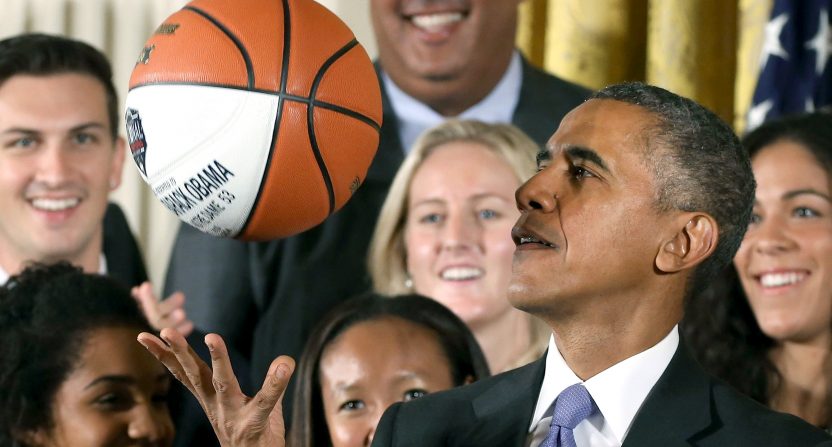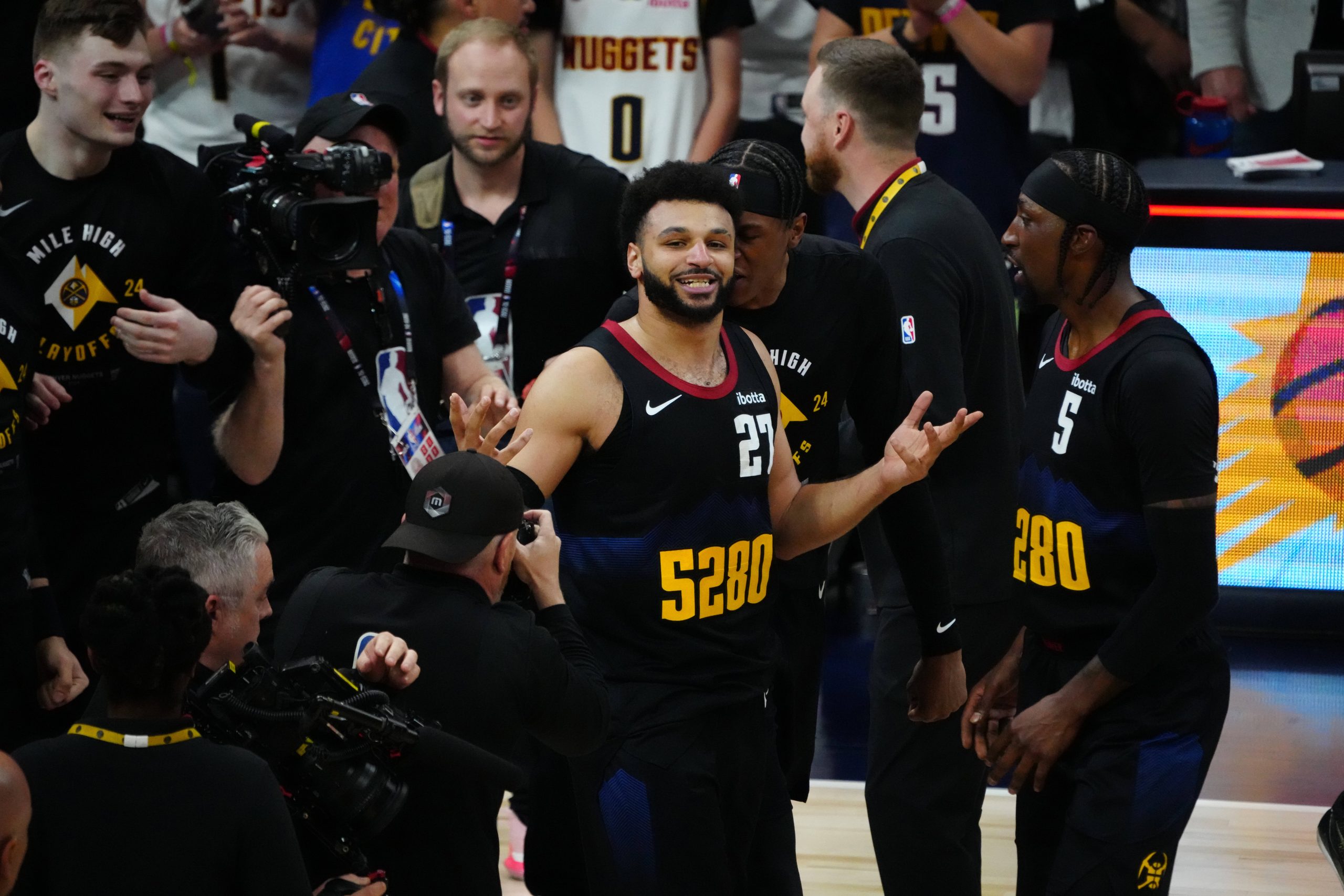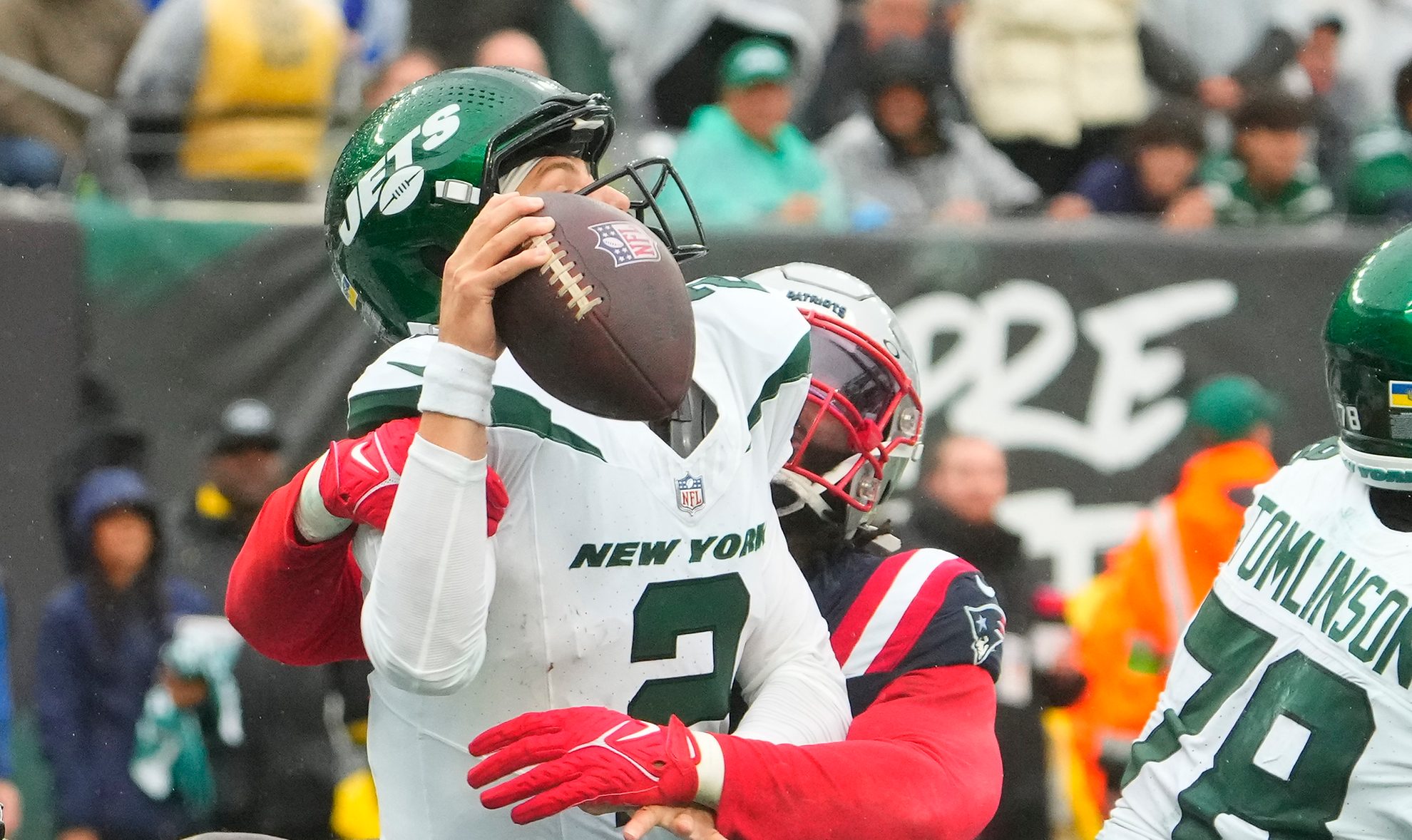It’s well known that former POTUS Barack Obama is a huge basketball fan. Every year he was in office, he would consistently fill out both a men’s and women’s tournament bracket for ESPN (a tradition his successor is not continuing). He’s not quite as powerful as he used to be while he was in office, but he still has one of the most influential voices in the world. And this week at the Sloan Sports Analytics Conference at MIT, Obama used that voice and influence to talk about the growing problems plaguing the NCAA.
The government is currently involved in college basketball with the FBI investigating secret payments between coaches, agents, and players. The growing scandal has rocked the already fragile world of college athletics and brought even more attention to the broken system that is the NCAA, where star athletes can make millions for their schools and yet can’t be taken out to lunch without, literally, a federal case being made out of it.
Obama said what most of us are all thinking – the NCAA system is not sustainable. Reason.com got a hold of Obama’s remarks (which were strangely treated like some kind of Area 51 top secret information) and part of them were dedicated to what’s currently happening in college basketball.
Obama’s suggestion? Kids going pro should explore an “alternative league” instead of playing the NCAA’s game.
The subject of the event was sports analytics, and the former president—known for his love of basketball—did not disappoint on that front. He discussed his own years as a mediocre high school basketball player, remarked that playing basketball with other people revealed much about their character, and opined that the NBA would be well-served by junior league “so that the NCAA is not serving as a farm system for the NBA with a bunch of kids who are unpaid but are under enormous financial pressure.”
“It’s just not a sustainable way of doing business,” said Obama. “Then when everybody acts shock that some kid from extraordinarily poor circumstances who’s got 5, 10, 15 million dollars waiting for him is going to be circled by everybody in a context in which people are making billions of dollars, it’s not good.” Creating an alternative league for people eventually headed to the NBA “won’t solve all the problems but what it will do is reduce the hypocrisy” of pretending that all student-athletes are both students and athletes.
Theoretically, this is something that should be obvious. For all of the one and done kids who are just making a pit stop in college because of the NBA’s age restriction, a year playing professionally before going into the draft should solve a lot of problems. The players get professional experience and they can actually get paid above board.
And theoretically, that “alternative league” already exists in the NBA G League. The idea to promote the G League as a more attractive option versus the NCAA is already gaining some momentum in many circles and even inside the NBA itself. The NBA’s minor league affiliated created in 2001 has seen some impressive growth over the last several years and now boasts 26 teams across the country.
However, the only real pathway to earning big bucks through the G League is with a call-up to an NBA roster and a two-way contract. That can’t happen for high schoolers going straight to the league with the NBA’s current rules. And with a maximum salary of $26,000, top high school prospects might find it more profitable to take the under the table payments in major college basketball and ride it out for a year before entering the draft. That’s where the system is fundamentally flawed. Perhaps that’s why we haven’t seen a major influx of high school talent into the G League and why the highest profile players to skip out on college are the Ball brothers playing in Lithuania.
Nevertheless, common sense seems to say that this is the right track to go down. There needs to be an opportunity for players coming out of high school that don’t just funnel them to the NCAA where they have to give all their rights away and hope for breadcrumbs from an unjust system. If the NBA were to provide an alternative where players can earn a decent living without the NCAA, it could help push the transformational change that is needed in college athletics.







